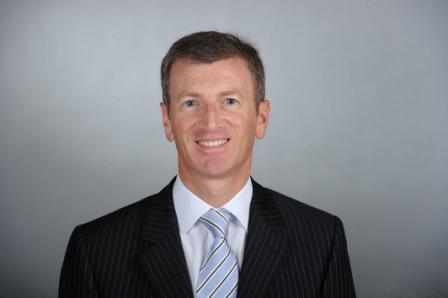AECOM has announced its appointment to the largest health care project to be undertaken in Saudi Arabia, a $4.4bn medical city, set on a 700,000m² site with a total built up area of 1,000,000m².
Located in Dammam and serving the Eastern Province’s 4.1million inhabitants, phase one of King Khalid Medical City will comprise of a 1500 bed hospital with six Centres of Excellence, housing and its own utilities plant.
AECOM’s consultancy design services contract, worth $27.85m for the company, will cover master planning, medical planning, architecture, interior design, medical equipment planning, engineering services, landscape and cost consultancy.
“This is a very important project for AECOM,” vice president of buildings for the Middle East, Anthony McCarter, told The Big Project.
“The Ministry of Health was very clear in terms of wanting to ensure the medical city has an identity, rather than being a large hospital, so it has been carefully planned to achieve that level of character,” McCarter added, explaining that the design was based on function, rather than form.
AECOM’s global healthcare portfolio to date includes Cleveland Clinic, Abu Dhabi; American Hospital, Dubai; Qatar Orthopaedic and Sports Medicine Hospital; Mayo Clinic, Minnesota; Yonsei University Medial Centre, Korea; Carilion Roanoke Memorial Hospital, Virginia; Mary Washington Healthcare, Virginia; University of Kentucky and the Albert B. Chandler Hospital.
Tenders for the enabling works on King Khalid Medical City will be launched by 2012 end with the tender for the entire ‘phase one’ launched and awarded by early 2013.
The project, as it is currently planned, is predicted to reach full capacity by 2022, by which time a second phase – providing additional housing, medical education facilities and a community hospital – will be fully operational.
“We are using evidence based design to make the project flexible to meet future needs in terms of the development of healthcare technology, which will validate the design we are currently undertaking, but equally looking at advances in technology and endeavouring to anticipate the potential developments in healthcare,” McCarter added.
Announced by Royal Decree in 2011, King Khalid Medical City is one of four such cities planned by the Ministry of Health with a total budget of $4.4bn. The second largest city will be based in Jeddah but details of the other projects have yet to be released.
“I think the scale of the development reflects the fact the countries are growing very quickly. We are seeing a greater emphasis on these types of projects now, for example healthcare, schooling and housing, particularly in places like Saudi. Those are very strong growth areas and that is why this is such a great project for us,” McCarter continued.
A full analysis and gallery of the project will feature in August issue of The Big Project

